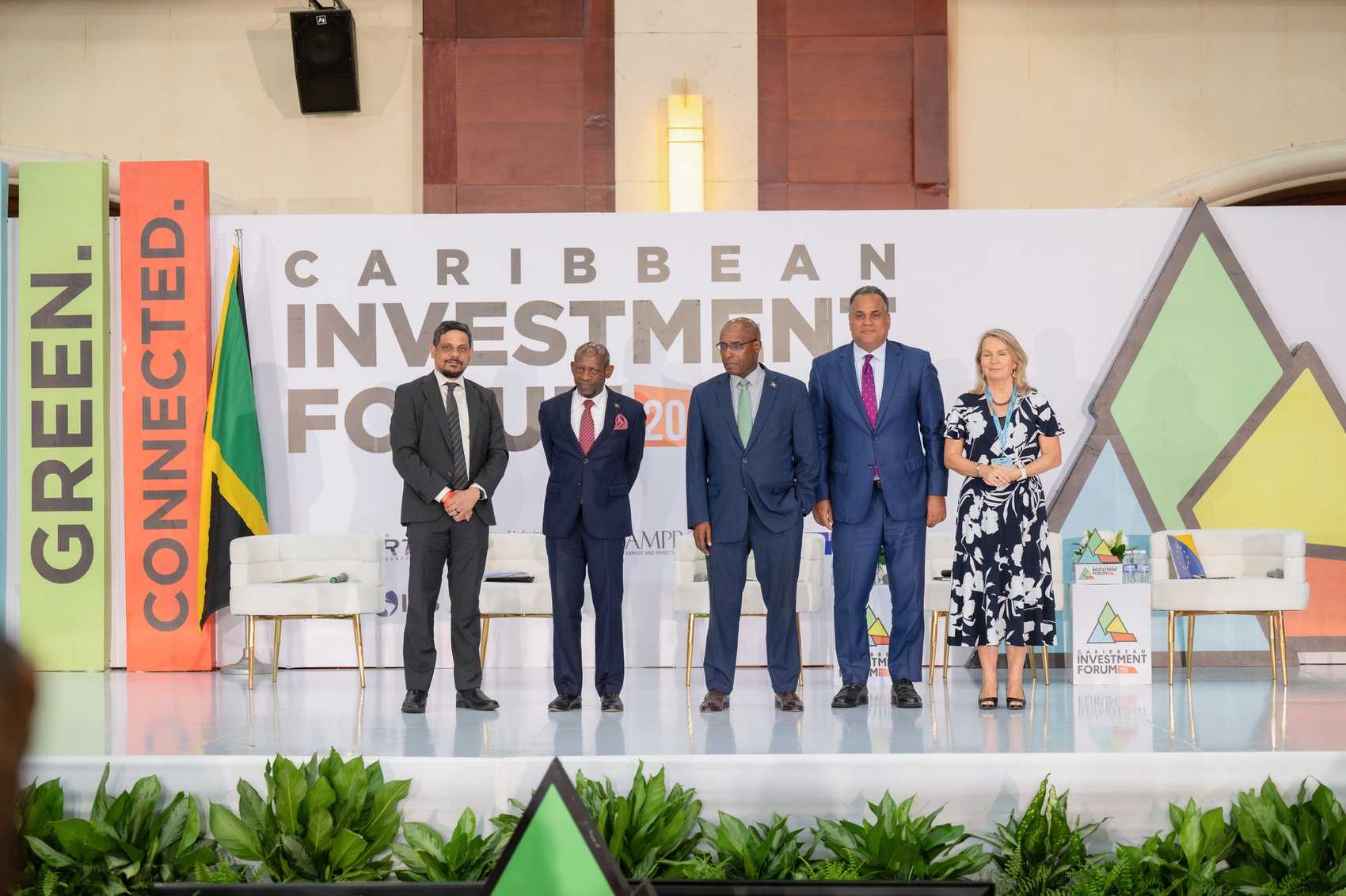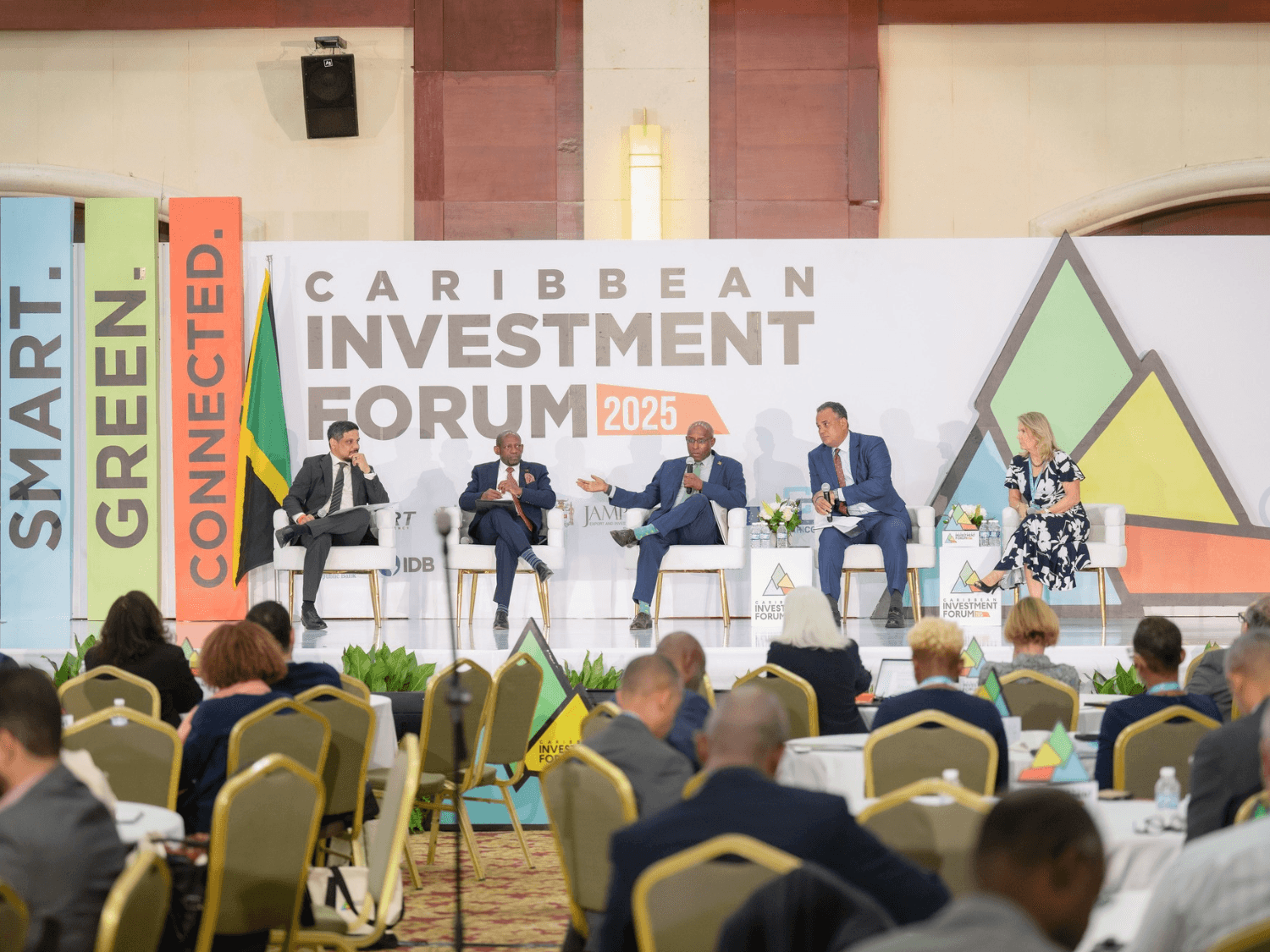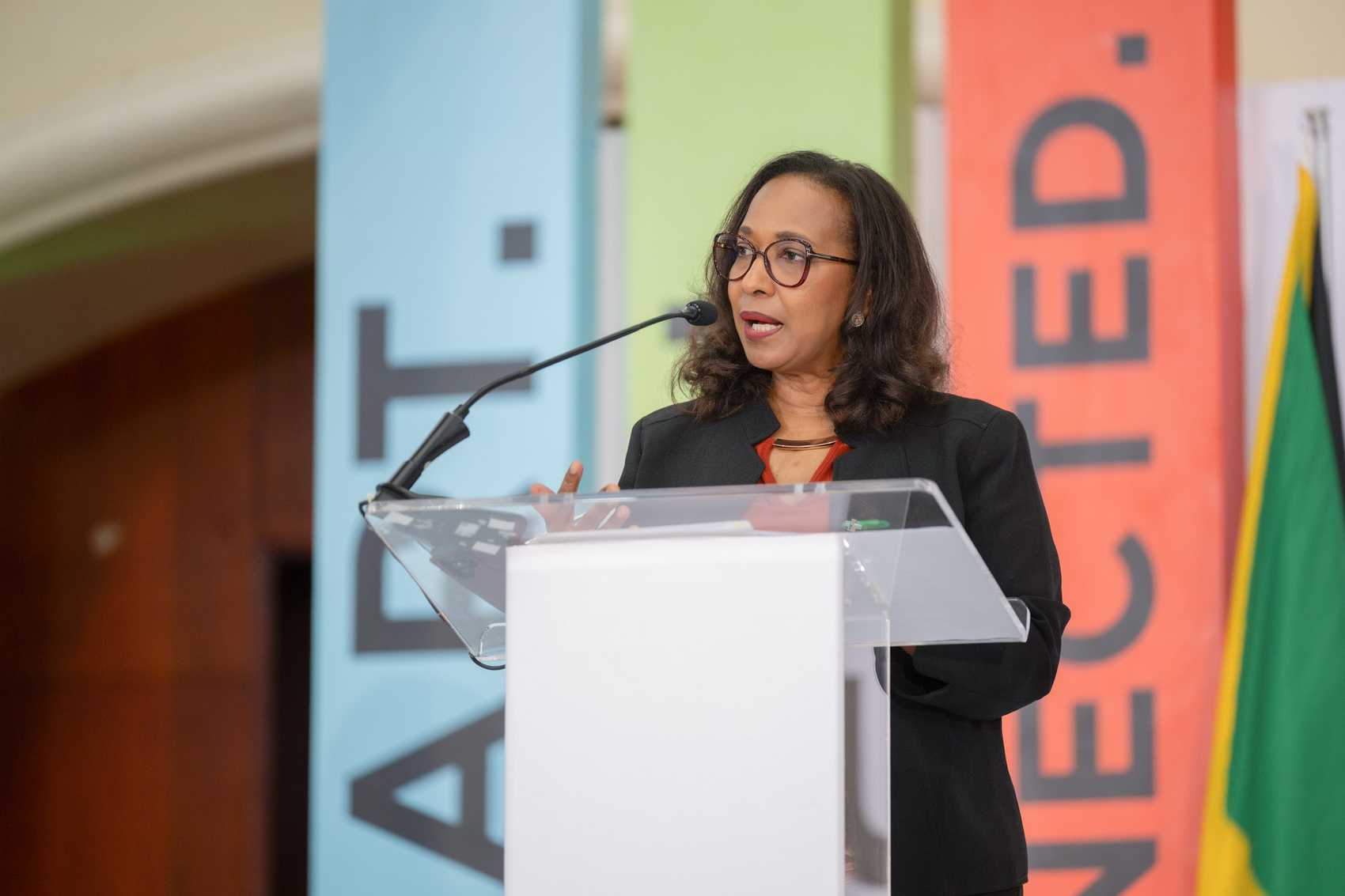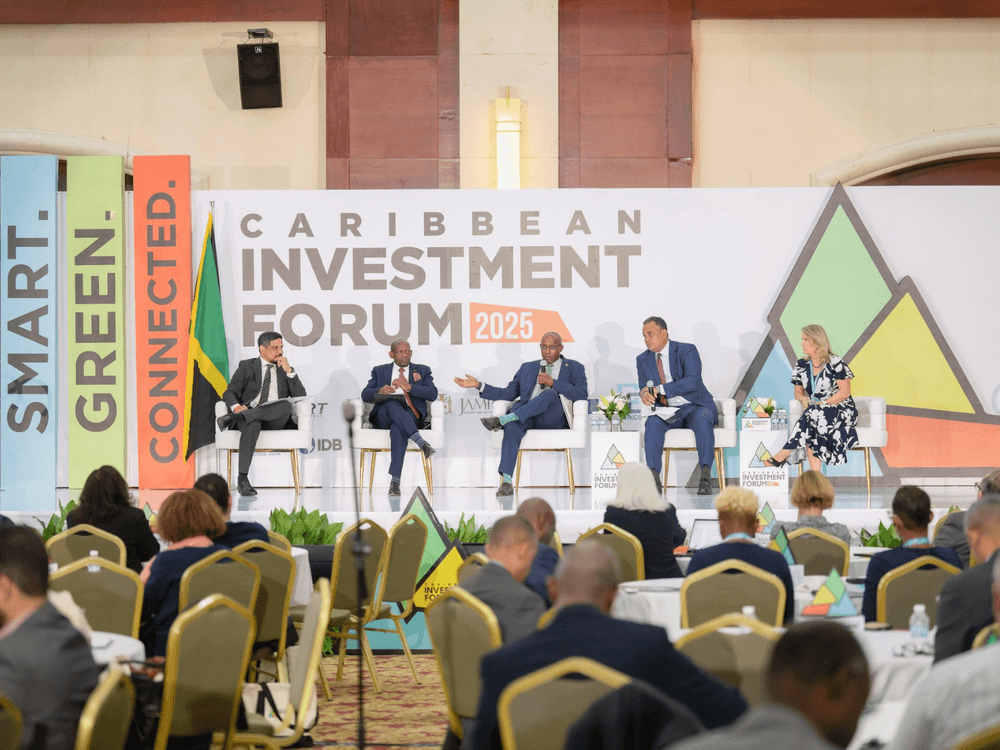Trade is no longer business as usual. As old economic alliances fray and new global power centers emerge, the Caribbean faces a choice: remain a passive observer of the shifting tides—or seize the moment to chart its own future. At the Caribbean Investment Forum in Montego Bay, leaders and international partners came together with a shared urgency to answer a fundamental question: what does it take to future-proof Caribbean trade and investment in a world where uncertainty has become the norm?
What emerged from the high-level roundtable, “The New Face of Trade: Future-Proofing Investment and Innovation in the Caribbean,” was not just a conversation about challenges but a bold reimagining of possibilities. The tone was clear: the region cannot wait for others to define its fate. It must set its own terms of trade, forge new alliances, and build resilience from within.
A Call for Regional Unity and Sovereignty
Hon. Dr. Denzil Douglas of St. Kitts & Nevis underscored the delicate balance between sovereignty and regional cooperation. “What is critical,” he noted, “is establishing a regional FDI framework that respects sovereignty while attracting investment in non-traditional sectors.” With discoveries like geothermal energy in Nevis, he illustrated how sustainable innovations have the potential to transition economies away from the vulnerabilities to external shocks.
Hon. Michael B. Halkitis of The Bahamas echoed this, advocating for Caribbean nations to “come together to achieve the scale needed to address economic injustices in trade,” including shipping and logistics costs. He reminded participants that crises, while disruptive, are also opportunities for reinvention. As he succinctly put it: “Let’s not waste a good crisis.”
Harnessing Private Sector and Policy Synergy
Senator the Hon. Aubyn Hill of Jamaica pushed for a more functional Caribbean Single Market and Economy (CSME), urging the private sector to collaborate with governments to build intra-regional partnerships. This, he argued, is vital for strengthening supply chains and creating an environment where trade “works for everyone.”
The European Union’s Eja Askola reaffirmed the EU’s commitment to fair, reliable partnerships with the Caribbean. She highlighted the need for harmonized regulatory frameworks and political will to step up regional value chains and integration—an essential factor for attracting sustainable foreign direct investment.
Blueprint for Trade Resilience
In her unmistakenly visionary voice Pamela Coke-Hamilton, Executive Director of the International Trade Centre laid out a pragmatic yet ambitious blueprint for “trade resilience in a fragmenting world”—one that rejects outdated dependency models and embraces strategic re-globalization. Her five-pillar framework challenges the Caribbean to move beyond tourism, diversify its economy through value-added industries like tech-enabled agriculture, invest aggressively in renewable energy, empower SMEs (especially women-led enterprises), embrace digital trade infrastructure, and tackle high logistics costs that stifle regional competitiveness.
Her five-pillar approach included:
- Strategic Re-globalization: Moving beyond tourism to diversify economies through value-added agriculture, sustainable fishing, and innovative industries.
- Climate Resilience: Accelerating the green transition with investments in renewable energy and infrastructure while addressing sovereign debt challenges.
- Empowering SMEs: Enhancing access to finance and markets, particularly for women-led businesses, to strengthen regional competitiveness.
- Digital Transformation: Building a robust digital trade infrastructure to connect businesses, reduce transaction costs, and unlock new market opportunities.
- Logistics and Transportation Investment: Tackling high regional transport costs to improve export competitiveness and attract investors.
Coke-Hamilton stressed that the Caribbean must “set our own terms of trade, rather than abiding by the terms set by others,” positioning the region as a proactive force in the evolving global trade order.
Forging South-South Alliances
One of the most compelling insights from the session was the untapped potential of south-south cooperation. With initiatives such as the African Continental Free Trade Area gaining traction, trade between the Caribbean and Africa could reach $2.1 billion within five years if barriers are removed. By fostering stronger ties with Africa and Asia, the region can reduce overdependence on traditional Western markets, opening new avenues for growth and innovation.
The Path Forward
The consensus from this energetic session was clear: the Caribbean’s resilience hinges on bold reforms, regional solidarity, and a decisive shift toward sustainability and digital innovation.
Building a unified foreign direct investment strategy, embracing renewable energy, and leveraging digital tools will not only “future-proof” the region but also elevate its standing in the global economy. As leaders at the forum expressed, the Caribbean must seize this moment to craft a trade and investment ecosystem that is inclusive, resilient, and strategically positioned for long-term prosperity.






